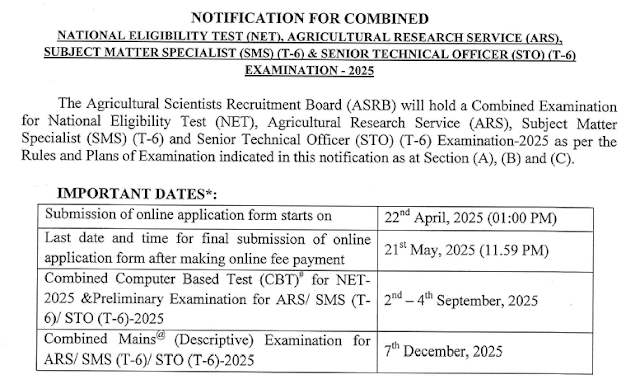Exploring the Fascinating World of Microbiology: A Gateway to the Future of Science
- By Farin Khatoon.
Microbiology, the study of microorganisms, has shaped our understanding of biology and revolutionized various industries, from healthcare to agriculture. From the discovery of the first microorganism to the development of life-saving antibiotics, the field has come a long way, and its scope continues to expand. In this blog, we’ll delve into the significance of microbiology, its potential for future advancements, and where you can study this fascinating field.
What is Microbiology?
Microbiology is a branch of science that focuses on the study of microorganisms—tiny life forms such as bacteria, viruses, fungi, and protozoa. These organisms are so small that they cannot be seen with the naked eye, but their role in the ecosystem, health, and industry is immense. Microbiology covers various subfields, including bacteriology, virology, mycology, parasitology, and environmental microbiology.
Why is Microbiology Important?
-
Healthcare Advancements: Microbiology has been crucial in the fight against infectious diseases. The discovery of antibiotics like penicillin by Alexander Fleming transformed medicine, saving millions of lives. Today, microbiologists are at the forefront of studying emerging diseases like COVID-19, developing vaccines, and combating antibiotic resistance.
-
Example: Vaccines developed through microbiological research, such as the mRNA vaccines for COVID-19, have showcased the potential of microorganisms in solving global health crises.
-
-
Environmental Impact: Microbes play a vital role in biogeochemical cycles, such as nitrogen fixation, waste decomposition, and soil fertility. Understanding microbial ecosystems allows us to harness them for environmental benefits, including bioremediation to clean up oil spills and other pollutants.
-
Example: The bacterium Alcanivorax borkumensis has been used to degrade hydrocarbons in oil spills, helping to restore affected environments.
-
-
Biotechnology Innovations: Microorganisms are essential in biotechnology for producing biofuels, enzymes, and even medicines. Through genetic engineering and fermentation processes, microbes contribute to food production, waste management, and even the creation of sustainable materials.
-
Example: E. coli is often used to produce human insulin for diabetic patients, marking a significant milestone in medical biotechnology.
-
-
Agricultural Revolution: Microbiology contributes to improving crop yields, plant protection, and sustainable farming. The study of plant-microbe interactions helps in developing biological fertilizers and pest control agents, reducing the reliance on chemical pesticides.
-
Example: The use of Rhizobium bacteria for nitrogen fixation in legumes boosts crop productivity without the need for synthetic fertilizers.
-
Emerging Fields in Microbiology
Microbiology is no longer confined to traditional areas; new fields continue to emerge, opening doors to innovative research:
-
Astrobiology: Microbial life in extreme conditions on Earth, like deep-sea vents, informs the possibility of life on other planets. Thermophiles, heat-loving microbes, provide insights into how life might survive on Mars or beyond.
-
Synthetic Biology: This innovative field combines engineering and microbiology to design and build new biological systems. Researchers are engineering microbes to produce biofuels, biodegradable plastics, and even pharmaceuticals.
-
Nanobiotechnology: Microorganisms are being engineered at the molecular level to create nanomaterials for use in electronics, medicine, and environmental science.
Where Can You Study Microbiology?
If you’re passionate about exploring the unseen world of microbes and making an impact in fields like healthcare, agriculture, and biotechnology, pursuing a degree in microbiology can be an exciting path. Several prestigious universities around the world offer excellent programs in microbiology and related disciplines. Here are a few top institutions:
-
Harvard University (USA)Harvard’s Department of Microbiology provides cutting-edge research in microbial genetics, immunology, and microbial ecology. The university’s advanced facilities and interdisciplinary approach make it one of the best places for aspiring microbiologists.
-
University of Cambridge (UK)The Department of Biochemistry at Cambridge offers undergraduate and graduate courses in microbiology, with opportunities to work on groundbreaking research in microbial pathogenesis and environmental microbiology.
-
Indian Institute of Science (IISc) (India)IISc is known for its world-class research in biological sciences, including microbiology. The institute offers graduate programs that focus on microbial ecology, molecular microbiology, and infectious diseases.
-
Pohang University of Science and Technology (POSTECH) (South Korea)With cutting-edge facilities and collaborations with international institutions, POSTECH offers a variety of research opportunities in microbiology and biotechnology. POSTECH is also home to several pioneering research in industrial microbiology and environmental microbiology.
-
Stanford University (USA)Stanford’s Microbiology and Immunology department provides a platform for students to explore microbial life from molecular biology to clinical applications. The university’s approach integrates microbiology with biotechnology and healthcare.
-
National Institute of Science Education and Research (NISER) (India)NISER offers a specialized microbiology program that focuses on microbial genetics, biotechnology, and environmental science. The institution is well-regarded for its research in microbial genomics and disease pathogenesis.
-
VIB-UGent Center for Plant Systems Biology (Belgium)VIB-UGent’s research in plant-microbe interactions is world-renowned. The center focuses on microbial ecology, host-microbe communication, and the molecular mechanisms of plant immunity, making it an ideal place for those interested in agricultural microbiology.
Conclusion: Microbiology is the Future
The field of microbiology is continually evolving and holds immense potential for solving some of the world’s most pressing challenges, from climate change to healthcare. Whether you’re interested in genetic engineering, disease control, environmental conservation, or biotechnology, microbiology offers a dynamic and impactful career path.
With numerous universities offering specialized programs and research opportunities in microbiology, students now have more access than ever to explore this fascinating field and make a difference in the world. If you’re ready to dive into the microscopic world and contribute to global solutions, microbiology might just be the field for you!


Comments